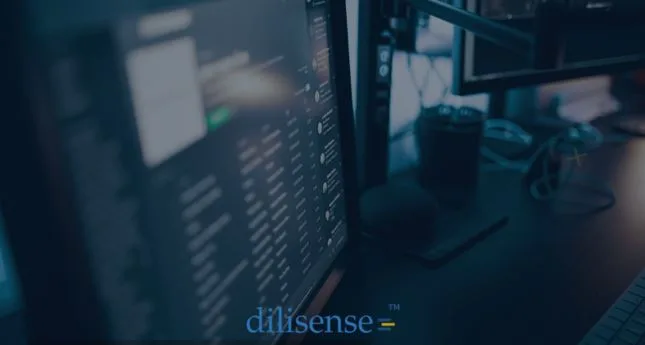What Does Compliance Mean in the Context of Sanction Screening?
What is Compliance Screening?
Compliance screening refers to the systematic process of evaluating individuals, organizations, or transactions to ensure adherence to relevant laws, regulations, and internal policies. This process is crucial for businesses and institutions to mitigate risks associated with legal violations, financial penalties, and reputational damage. Compliance screening typically involves checking against various databases, such as sanctions lists, watchlists, and politically exposed persons (PEPs) registries, to identify any potential red flags. Additionally, it may encompass background checks, due diligence assessments, and ongoing monitoring to ensure that all parties involved in a transaction or business relationship meet the necessary compliance standards. By implementing robust compliance screening measures, organizations can foster a culture of integrity, enhance their operational efficiency, and build trust with stakeholders while navigating the complexities of regulatory environments.
In an increasingly interconnected world, businesses and organizations must navigate a complex web of regulations to ensure compliance with various economic and trade restrictions. Sanction screening is a critical process that helps identify individuals, organizations, or entities that may be subject to these restrictions.
This comprehensive guide will walk you through the essential stages of sanction screening, shedding light on how this systematic approach can protect your organization from legal risks and reputational damage.
- Initiation of the Screening Process
The first stage of sanctions screening begins with the initiation of the process itself. Organizations must recognize the importance of implementing a robust screening mechanism as part of their compliance strategy. This involves defining the scope of the screening program, which includes determining the types of sanctions to monitor—ranging from government-imposed trade restrictions to international regulatory bodies’ lists.
At this stage, businesses typically gather relevant information about their counterparties, including customers, suppliers, and partners. Establishing a comprehensive database is essential; organizations often collect data such as names, addresses, and identification numbers to ensure accurate screening.
- Data Collection and Preparation
Once the screening process is initiated, the next step involves meticulous data collection and preparation. Organizations compile the necessary information needed for effective screening, ensuring it is current and comprehensive. This often includes gathering data from various internal systems and external sources, such as government databases, publicly available records, and specialized third-party providers.
This stage is crucial because the quality of the data directly influences the accuracy of the screening results. Systems used for sanction screening must be capable of properly storing and categorizing data to facilitate next steps. It’s important to regularly update data sources and maintain a high level of data integrity.
- Screening against Sanction Lists
After preparing the data, organizations proceed to the actual screening phase. At this point, the compiled information is checked against various sanction lists. These lists may include those published by government entities, international organizations like the United Nations, and regional bodies like the European Union.
The screening process utilizes advanced algorithms and software tools designed to match the collected data against these lists effectively. During this phase, it is essential to account for name variations, aliases, and changes in status to minimize false positives. This intricate matching process is vital to ensure that legitimate clients are not erroneously flagged while still identifying high-risk entities.
- Risk Assessment and Decision-Making
Once the screening is complete, the next stage is risk assessment and decision-making. Here, organizations must analyze the results to determine the potential risks associated with each flagged individual or entity. This involves assessing the nature of the sanctions involved, the reasons behind them, and the implications for business relationships.
Organizations often establish clear procedures for handling matches. Depending on the nature of the findings, they may choose to conduct further investigations, engage with legal counsel, or even decide to terminate relationships with certain parties. The ability to document the decision-making process is crucial, particularly if the organization is ever audited for compliance.
Implementing Compliance Screening
Compliance screening plays a crucial role in the financial sector, serving as a vital mechanism to mitigate risks associated with money laundering, fraud, and other illicit activities. Financial institutions are required to adhere to stringent regulations that mandate thorough vetting of clients, transactions, and business partners to ensure they do not engage with individuals or entities involved in criminal activities. This process not only protects the integrity of the financial system but also safeguards the institution’s reputation and operational viability. By implementing robust compliance screening protocols, organizations can identify and address potential red flags early, thereby preventing financial losses and legal repercussions. Furthermore, effective compliance screening fosters trust among stakeholders, including customers, regulators, and investors, as it demonstrates a commitment to ethical practices and regulatory adherence. In an increasingly complex global landscape, where financial crimes are becoming more sophisticated, the importance of diligent compliance screening cannot be overstated; it is an essential component of a proactive risk management strategy that ultimately contributes to the stability and resilience of the financial industry.
What are the Benefits of Financial Compliance?
Financial compliance offers a multitude of advantages that are essential for organizations operating in today’s complex regulatory environment. Firstly, adhering to financial regulations helps mitigate the risk of legal penalties and fines, which can be substantial and detrimental to a company’s financial health and reputation. Compliance also fosters trust and credibility among stakeholders, including investors, customers, and regulatory bodies, as it demonstrates a commitment to ethical practices and transparency. Furthermore, effective financial compliance can enhance operational efficiency by streamlining processes and ensuring that financial reporting is accurate and timely. This not only aids in better decision-making but also improves the overall financial management of the organization. Additionally, a strong compliance framework can serve as a competitive advantage, as it positions the company as a responsible entity in the eyes of consumers and partners, potentially leading to increased business opportunities and market share. Ultimately, the benefits of financial compliance extend beyond mere adherence to laws; they contribute to the long-term sustainability and success of the organization.
The Importance of Monitoring
Sanction screening is not a one-time event but a continuous process that requires ongoing monitoring and review. As regulations and sanction lists change frequently, businesses must remain vigilant to ensure compliance. To combat this, organizations should invest in robust screening solutions that automate updates and alerts, significantly streamlining the compliance process.
By understanding and effectively managing the stages of sanction screening—initiation, data collection, screening, and risk assessment—organizations can significantly reduce their exposure to legal and financial risks while safeguarding their reputations. In today’s global market, adhering to sanction compliance is not just about following the rules; it’s about fostering trust and integrity in business practices. With a solid understanding of these processes, companies can navigate the nuances of sanction screening successfully and maintain a strong compliance posture.


